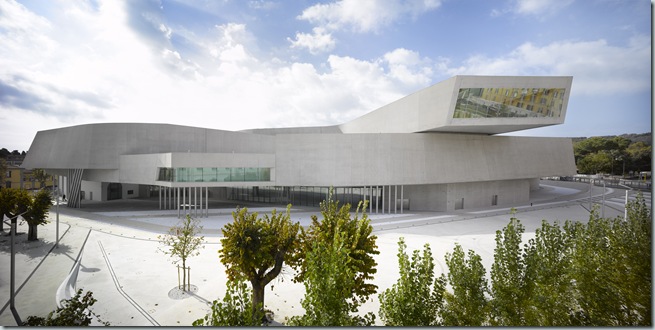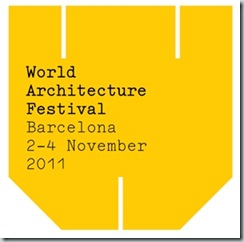MAXXI_National Museum of XXI Century Arts_designed by Zaha Hadid Architects_ photo by Roland Halbe
31st March 2011
Calling architects the world over: World Architecture Festival Awards opens for entries
The search begins for the best buildings in the world
The search has once again begun to find the best buildings in the world as the World Architecture Festival (WAF) Awards 2011, the world’s largest architectural awards programme, opens for entries tomorrow (1st April).
Architects from around the globe are invited to follow in the footsteps of last year’s World Building of the Year winner, Zaha Hadid Architects MAXXI, National Museum of XXI Century Arts, and submit entries to find the best examples of new world architecture.
The WAF Awards, one of the highlights of the global architectural calendar, are taking place for the fourth time in Barcelona this November.
Submissions can be made online from 1st April; deadline for entries is 30th June 2011.
For each entry submitted, a second project can be submitted in any category at no extra cost – two projects can be entered for the price of one.
The WAF Awards embrace a range of entrants, from leading global architectural firms to small practices (unknown outside their own country), competing as equals on a global stage. More than 500 entries were received last year from more than 55 different countries.
Shortlisted entrants present their projects live to international judging panels and delegates during the Festival, which takes place in Barcelona from 2nd– 4th November 2011, as they compete for a coveted WAF Award.
This year’s Super Jury, which decides on the World Building of the Year 2011, comprises Michael Sorkin, principal of Michael Sorkin Studio, New York; Ben van Berkel, Co-founder of UNStudio, Amsterdam; Jo Noero, Principal of Noero Wolff Architects, Cape Town; Odile Decq, Principal of ODBC, Paris; and Professor Kongjian Yu, Principal of Turenscape, Beijing, a double category winner in previous WAF awards.
The Awards are divided into three main sections: Completed Buildings, Structural Design, and Future Projects (for designs in progress). Each section includes up to 15 categories in order to maximise the opportunity to enter. In the Completed Buildings section, a variety of project categories such as Learning, Culture and Office allows a wide range of projects to be eligible for entry. The Structural Design Section covers a variety of materials used such as Glass, Timber and Masonry, whilst the Future Projects section encourages an assortment of pipeline plans to be entered, such as Masterplanning, Commercial and Landscape. There are a total of 30 awards to be won.
Every project entered is showcased in the Festival gallery for delegates, architects, clients and critics to see at WAF.
Paul Finch, WAF Programme Director said: “The World Architecture Festival Awards celebrate the achievements of a huge variety of architectural practices. Unsung local buildings take on internationally acclaimed projects in what is the world’s biggest architecture contest. We are once again looking forward to presenting prizes that are internationally recognised by architects and clients alike.”
The WAF Awards are at the heart of the World Architecture Festival (WAF) and will take place at the Centre Convencions International Barcelona (CCIB) this November alongside a packed programme of presentations, seminars and exhibitions.
To enter the Awards, please go to: www.worldarchitecturefestival.com
All entries must be completed by 30th June 2011.
Previous World Building of the Year winners are Luigi Bocconi University, Milan, by Irish practice Grafton Architects (2008); Mapungubwe Interpretation Centre, South Africa, desgned by Peter Rich Architects of Johannesburg (2009); and MAXXI, National Museum of XXI Century Arts, Rome, by Zaha Hadid Architects (2010).
Entries are now invited in the following categories:
Completed buildings
Civic and community Housing Learning
Culture Landscape New and old
Display Office Production
Health Shopping Sport
Holiday Transport House
Future projects Structural Design
Masterplanning Spans
Landscape Towers
Infrastructure Metal
Competition entries Concrete
Residential Timber
Commercial Glass
Cultural Tensile
Educational Masonry
Experimental projects Composites/Synthetics
Health

